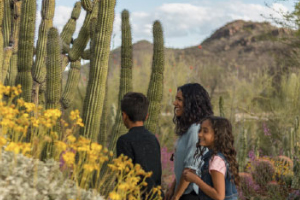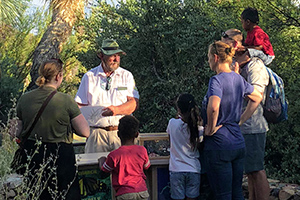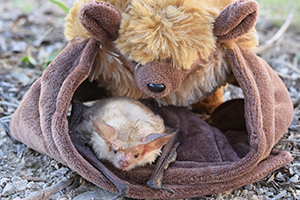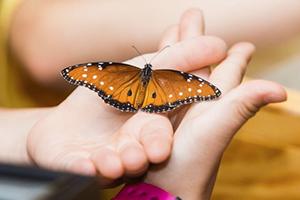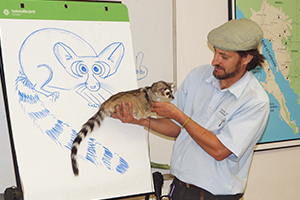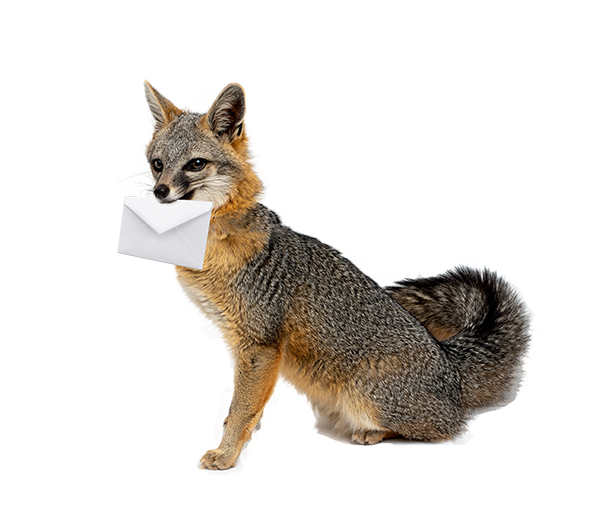The Coati (co-AH-tee) is a relative of the raccoon with a long nose, masked face, and a striped tail. Coatis are curious and energetic, just like kids!
Coati Club News, Earth Day 2018
Celebrate Our Beautiful Planet
EARTH
Did you know that we have a special day just to celebrate our planet? It is called Earth Day, and it started in the United States way back in 1970! April 22nd is a day to help people remember how important it is to protect our environment and the biodiversity of the Earth- and to suggest and share ways we can all contribute. The goal is to limit or eliminate air, water, and soil pollution. Although it started in the United States, Earth Day has become a worldwide celebration.
Earth Day 2018 Focus
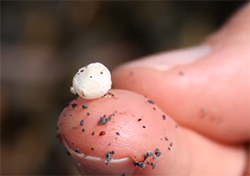
The special focus for Earth Day, 2018, is ending plastic pollution. Plastic pollution is when things made of plastic build up in the environment. Plastic pollution negatively affects the land and oceans. On land, many plastic bottles, bags, or containers do not break down or decompose for hundreds of years. Animals can get tangled in discarded plastic objects, or eat pieces of plastic materials, causing them to become sick. Often they don’t survive. In the ocean, fish or aquatic mammals can get tangled up in fishing line and are unable to swim. Other plastic objects may break down into very small pieces, called microplastics, in the ocean water. Animals accidentally take in these tiny particles which get concentrated in greater numbers and sicken animals as they pass up the food chain.
Plastic Pollution in the Sea of Cortez
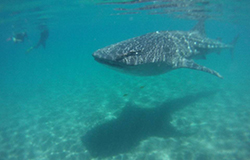
About 200 miles Southwest of Tucson is the Sea of Cortez, a part of the Pacific Ocean between Baja California and Mexico. This is one of the areas where scientists are concerned about plastic pollution. Whales, sharks, and rays can take in plastic when they eat. The endangered Whale Shark, the largest fish in the world, feeds on tiny plankton and small fish. If they swallow very small pieces of plastic along with their food, their overall health, including the way they grow, can be affected. Learn more about microplastics in the ocean and how we can prevent this problem by watching this video.
How Can You Help Our Planet?
How can you help? You can make choices every day that use less energy, save water, and protect habitat for life on Earth. Check out this list of ideas you can do for Earth Day - and EVERY day - to help make a difference!
- Recycle paper, plastics, and cans.
- Don’t throw it away - fix it!
- Use recycled or reusable bags at the grocery and other stores.
- If you are hiking or going on a picnic, take all your trash with you when you leave.
- Put litter in a trash container (and recycle when possible!)
- Conserve water - turn off the faucet when you are not using water, fix drips, take shorter showers, and run the dishwasher only when it is full.
- Plant trees and bushes native to the Sonoran Desert, and collect rainwater to use for watering plants.
- Grow your own vegetables, buy local produce.
- Buy fruits, vegetables, dairy, eggs, and meat that are raised with organic standards. These use fewer chemicals that can harm wildlife habitat and animal/human health.
- Choose one day a week (such as a "Meatless Monday") on which you skip eating meat or other animal products. Animal products require much more energy and water to produce than plant-based foods, and animal waste can pollute waterways and contribute to climate change.
- Make more meals from scratch.
- Say no to single use plastic. Limit using straws, or better yet, get a metal straw that you can wash and reuse.
- Shut off the lights or fans when you are not in the room.
- Respect wildlife and plants, speak up for wildlife and nature.
- Cut down on air pollution by riding a bike, walking, or carpooling instead of riding in a car.
- When not in use, unplug electronics like TVs, DVD players, computers, cell phone chargers, iPod docking stations, video game systems, etc. This could keep thousands of pounds of carbon dioxide out of the air annually and save money on power bills. These so-called "vampire appliances" can use power, even when they’re off, because of their standby mode.
- Switch from traditional incandescent bulbs or compact fluorescent bulbs to LED lights to save energy.
- Another way to save on power bills is to adjust the thermostat, since heating and cooling accounts for a lot of household energy use. Don’t heat or cool the house a lot if you are going to be gone all day.
Photo credits: Microplastic, PBS Learning Media; Whale Shark, Julie Xelowski-Brooker

